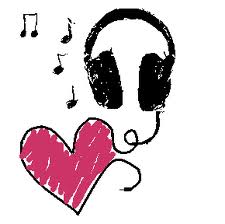 I can’t stand silence. There’s always some background noise (mostly music) wherever I happen to be: at home it’s radio, at work and on the go it’s headphones. Moreover, music is a must-have whenever I’m staring at a blank screen in the attempt to produce the first words of my new piece of writing.
I can’t stand silence. There’s always some background noise (mostly music) wherever I happen to be: at home it’s radio, at work and on the go it’s headphones. Moreover, music is a must-have whenever I’m staring at a blank screen in the attempt to produce the first words of my new piece of writing.
That’s the case with many of my acquaintances and I wondered: Why so? What is it all about music that we can’t live without it?
After a short research credible answers with explanations appeared.
The Most Convincing Was the Neurological Approach
As we all know, every piece of music has a rhythm. We perceive it as stressed and unstressed beats in patterns that continuously repeat. All our inner organs work under the influence of rhythm, which also plays an outstanding role in the ability of our mind to organize billons of electrical impulses into understandable, logically arranged mental pictures. If there is a movement of any kind, rhythm controls this movement. When there’s a change of the rhythm of a movement, there’s also a change of the final result of this movement. So, all in all rhythm controls the way the impulse is sent in the neurological system, controlling the way the message is perceived. In the long run it means that an external rhythm can change mental pictures in our head, or even the way we perceive reality.
The conclusion is: music can help you create necessary mental pictures related to your writing. You simply need to know which music helps you get the desired effect.
However, you need to be careful with the volume. If it’s too loud, you can literally lose touch with reality. So beware!
Some researchers claim that music has the following effect on mental state in general:
- fights depression;
- relieves anxiety;
- improves learning abilities;
- boosts confidence.
What’s more, there’s a whole theory claiming that listening to Mozart’s music can temporarily improve overall performance, IQ level including. This is the famous Mozart Effect that got popular in the late 1950s. This theory also suggests that:
- music increases concentration levels, improves memory;
- it increases creativity and problem-solving skills;
- makes learning easier;
- speeds healing (provokes development of endorphins).
Music appears to be a very powerful tool, indeed!
So How Can Music Help You Write?
Believe it or not, but music dramatically helps the writing process:
- music can set you into the light mood;
- it can also tune you to philosophical thoughts;
- it can help you get concentrated and not distracted by other people or noises;
- it can simply serve as a subconscious trigger for the start of working;
- right music speeds up writing;
- it provides some prompts and ideas as to how to start your writing.
And these are not empty words. Lots of writers claim to have separate writing playlists that help them concentrate. For example, Nahashon listens to HipHop and R’n’B when he’s either about to finish or begin his work. He genuinely believes that music is soothing and relaxing.
Naturally, not everybody is the listening-to-music nature. Sweetessays, for example, finds music distracting and disorienting. Thus, he treats himself with a bit of classics only at breaks or when he’s about to work on a really difficult assignment.
Either way, music can definitely have a positive effect on you and give you the inspiration to get going. William Shakespeare once wrote, “If music be the food for love, play on”. Well, I say if music be the food for writing, by all means, play on!